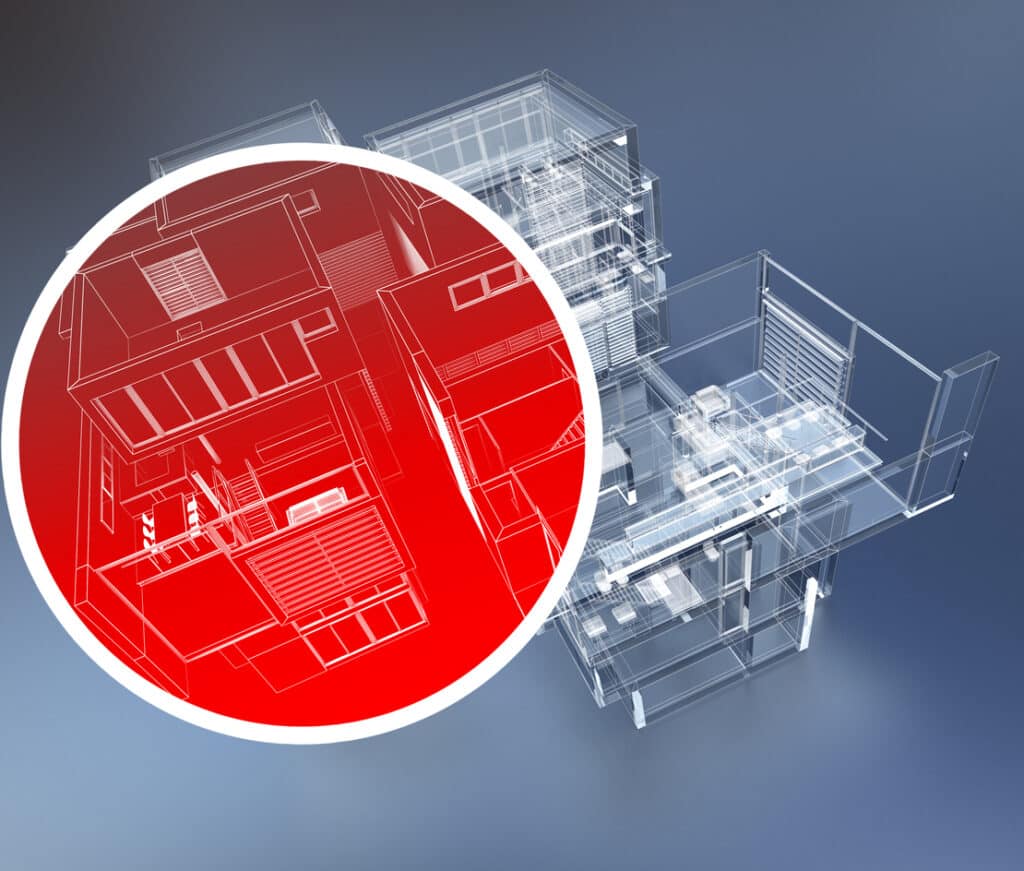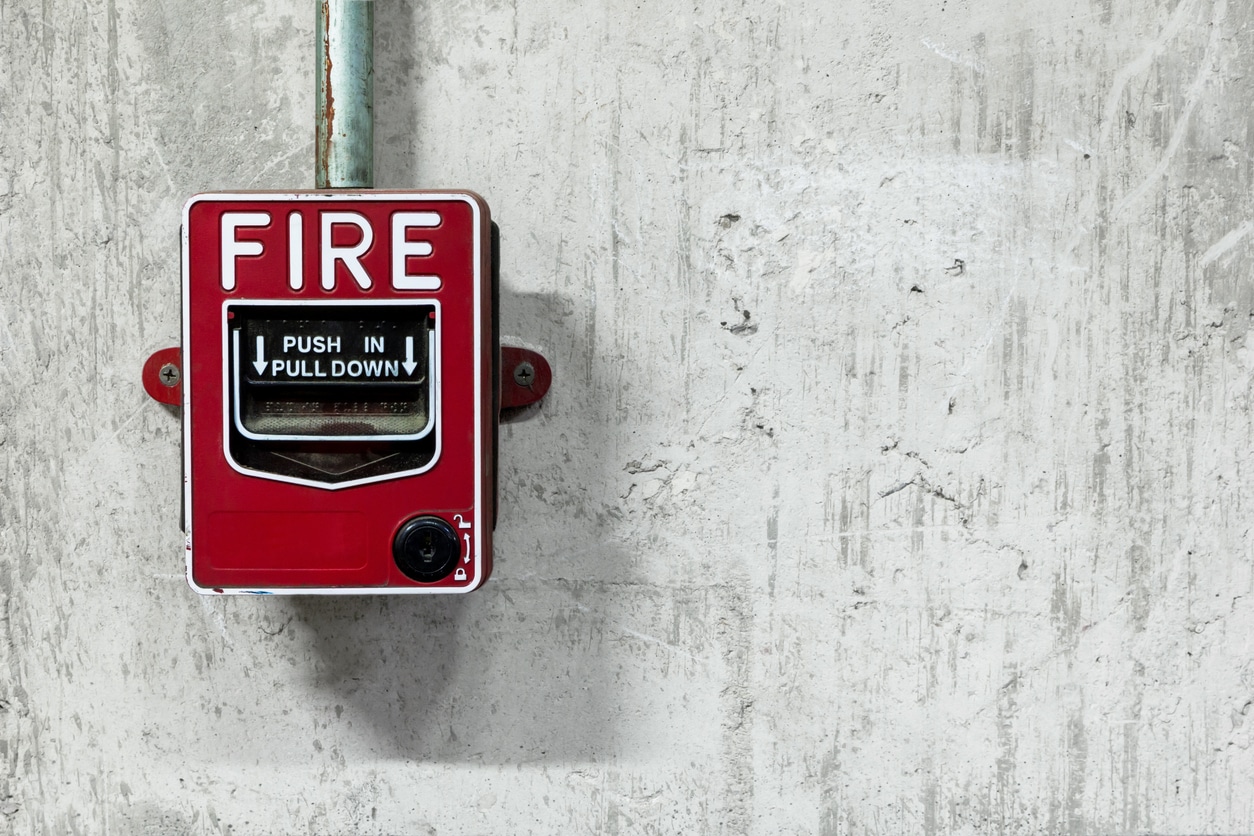Fire safety is something everyone should be concerned about. OSHA reports more than 200 workplace fires per day, with more than 5,000 people injured by workplace fires annually. There have been almost 1000 home fire fatalities in 2024 already. These are scary statistics so how do you stay safe?
A key component of this is fire alarm monitoring. But what exactly is fire alarm monitoring? How does it work? And why is it so important for fire safety?
In this article, we will explore these questions and aim to provide a comprehensive understanding of fire alarm monitoring.
This guide is for you, whether you’re considering installing a new system or just curious about the process. Let’s explore the world of fire alarm monitoring together.
Understanding Fire Alarm Monitoring
Fire alarm monitoring is a crucial part of any comprehensive fire safety plan. It involves a system of sensors and alarms connected to a monitoring center that detects specific components of a fire.
When fire or smoke is detected, the system sends an alert to the monitoring center, which then dispatches emergency services to the location.
This process ensures a rapid response to any fire incidents, potentially saving lives and reducing property damage.
Things to understand about fire alarm monitoring:
- It provides 24/7 surveillance of your property for fire and smoke.
- The system can detect both visible flames and invisible smoke particles.
- It sends an immediate alert to a monitoring center upon fire detection.
- The monitoring center verifies the alarm and contacts the local fire department.
- The system can also alert building occupants, allowing them to evacuate safely.
Fire alarm monitoring is the proactive approach to fire safety. Knowing that your property is constantly monitored for fire threats provides invaluable peace of mind.
The Components of a Fire Alarm Monitoring System
A fire alarm monitoring system is made up of several key elements.
These elements work together to detect fires, alert the monitoring center and initiate emergency responses.
Let’s take a closer look at what makes up a fire alarm monitoring system:
- Fire Alarm Control Panel (FACP): This is the system’s heart. It receives signals from detectors and initiates the alarm.
- Detectors: These include smoke detectors and heat sensors. They detect signs of fire and send a signal to the FACP.
- Alarm Notification Appliances: These are devices like sirens and strobe lights. They alert building occupants of a fire.
- Monitoring Center: This off-site facility receives alerts from the FACP. It verifies the alarm and contacts the fire department.
Each component is vital in ensuring a quick and effective response to fire incidents. Together, they form a comprehensive system that provides round-the-clock fire safety monitoring.
Types of Fire Alarm Sensors and Their Functions

Fire alarm systems use various types of sensors to detect signs of fire. These sensors are designed to detect smoke, heat, or flames.
- Smoke detectors: These sensors detect smoke particles in the air. They are often used in residential and commercial buildings and come at a variety of price points.
- Heat detectors: These sensors detect a rapid increase in temperature. They are typically used in environments where smoke detectors, such as commercial kitchens or garages, may give false alarms.
- Flame detectors: These sensors detect the infrared or ultraviolet light produced by flames. They are used in high-risk environments like chemical plants or oil refineries.
Each type of sensor plays a vital role in detecting fires early and triggering the alarm system.
The Importance of 24/7 Fire Safety Monitoring
Fire incidents can occur at any time, which is why 24/7 fire safety monitoring is crucial. It ensures that your property is protected around the clock.
When a fire alarm system is monitored 24/7, any alarm triggered will immediately alert the monitoring center. This allows for a quick response, potentially saving lives and minimizing property damage.
The gist is that 24/7 fire safety monitoring provides peace of mind. Knowing that your property is constantly monitored can help you focus on other important aspects of your business or home.
Integration with Other Security Systems
Fire alarm monitoring systems can be integrated with other security systems, creating a comprehensive safety and security solution for your property.
Integration with a CCTV system can provide visual verification of a fire, which can help assess the situation and plan the response.
Integration with access control systems can aid in emergency evacuation. Doors can be automatically unlocked, providing a clear exit path for occupants. This shows how fire alarm monitoring is vital to a holistic security strategy.
Commercial Fire Alarm Monitoring Cost Factors
The cost of commercial fire alarm monitoring can vary widely. It depends on several factors.
Key factors include the property’s size, the system’s complexity, and the level of service required. For instance, a large commercial building with multiple floors will require a more complex system than a small office.
- Here are some cost factors to consider:
- Size and layout of the property
- The number and type of sensors needed
- Integration with other security systems
- Level of monitoring service required
- Installation and maintenance costs
- Compliance with local fire codes and regulations
Understanding these factors can help you budget for a fire alarm monitoring system.
Choosing the Right Fire Alarm Monitoring Service Provider
Choosing the right fire alarm monitoring service provider is crucial. You want a provider that is reputable, certified, and experienced.
Look for providers who adhere to National Fire Protection Association (NFPA) standards. They should also offer regular testing and maintenance services.
Remember, your fire alarm system’s effectiveness depends on the monitoring service’s quality. So, make an informed choice.
Reliable Fire Alarm Monitoring from Quick Response
Are you ready to elevate your fire safety with a monitoring service you can trust day and night? At Quick Response, we specialize in providing fire alarm monitoring services tailored to meet your unique needs.
With over 40 years of industry experience, our fire alarm monitoring solutions offer not just security but peace of mind. Our state-of-the-art technology and dedicated professionals ensure that your property and people are protected 24/7.
Don’t wait for a fire emergency to strike—contact Quick Response today to discuss how we can help secure your assets with our reliable and comprehensive fire alarm monitoring solutions. Our specialists are ready to assist you with a fire safety strategy that integrates seamlessly with your business, providing enhanced protection and service 24/7.




